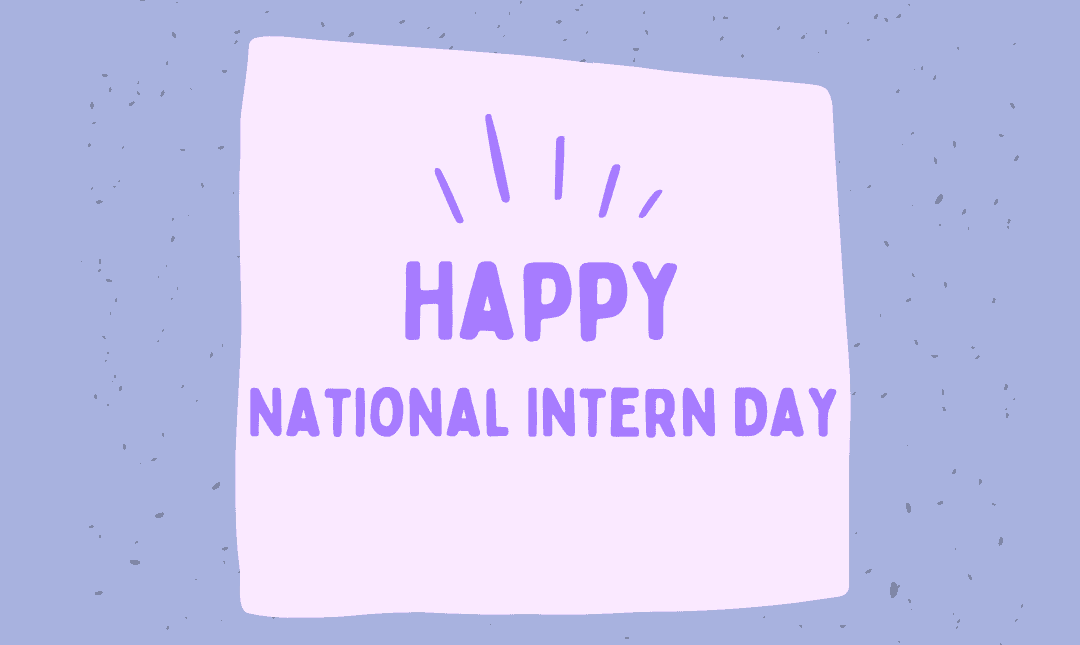In Honor of National Intern Day

In honor of National Intern Day, here is a list of the benefits of landing an internship before junior year of college followed by a list of the best ways to land an internship:
1. Exploration of interests: Early internships allow students to explore different career paths and industries to find what truly aligns with their strengths, passions and goals.
2. Industry insights: Internships give students a chance to gain insights into the industry they are interested in, helping them make more informed career decisions.
3. Real-world experience: An internship provides hands-on experience in a professional setting, allowing students to apply theoretical knowledge to practical situations.
4. Skill Development: Internships offer opportunities to develop and enhance various skills, including communication, teamwork, problem-solving, and time management.
5. Networking opportunities: Internships allow students to build valuable connections with professionals in their field, which can lead to future job opportunities or mentorship.
6. Resume booster: Having an internship on your resume demonstrates to future employers that you have practical experience and are proactive about your career.
7. Personal growth: Working in a professional environment fosters personal growth, self-confidence, and a better understanding of workplace dynamics.
8. Recommendation letters: A successful internship can lead to strong recommendation letters from supervisors, professors, or mentors, further bolstering your job applications.
9. Increased future internship and job prospects: Internships often open up future job opportunities, and some companies even hire their former interns for full-time positions.
10. Competitive advantage: Getting an internship early on gives students a competitive edge over their peers when seeking future internships or jobs.
The 10 best things to do NOW to land an internship LATER:
1. Build a network: Reach out to professionals working in industries of interest and set up informational interviews (at least 5 a week!) to learn about their current job and career path. This is the best way to build a network as a young adult.
2. Build rapport with relevant professionals: Stay in touch with relevant professionals in your network. Find reasons to reach out and stay top-of-mind. You’ll stand out by doing so and your network is more likely to think of you when they hear about internship opportunities.
3. Tap into college resources: Most colleges have career services offices that can help you find internships, review your resume, and provide interview preparation. Many students don’t take advantage of the resources at their school.
4. Get a mentor: Some universities have a mentorship program that will match you to an alum in your field(s) of interest. To find out if your school offers this type of program, contact career services or go to your department head. If your school does not offer this type of program then ask if they will connect you to 2-3 alumni working in your areas of interest.
5. Leverage your network: Inform family, friends, professors, and career counselors that you’re looking for an internship; they might have valuable connections or know about available positions.
6. Attend career fairs: Participate in career fairs and networking events hosted by your college or professional organizations in your college town, nearby city, or your hometown. It’s always beneficial to connect with employers directly instead of on Zoom or online. Make sure you have an elevator pitch that goes beyond your resume. Show a genuine interest in employers and come up with a few interesting and relevant things about yourself to weave into a conversation. Be somewhat deliberate in your conversation.
7. Customize your resume and cover letter: Tailor your application materials to each internship opportunity, highlighting relevant skills and experiences.
8. Prepare for interviews: Practice common interview questions, research the company, and be prepared to provide examples of your relevant skillset plus demonstrate your interest and enthusiasm for the internship.
9. Showcase your passion and motivation: During interviews, communicate your eagerness to learn, grow, and contribute to the organization
10. Consider smaller companies and startups: Don’t overlook smaller organizations, as they may offer valuable learning experiences and be more willing to hire younger students.
Remember, persistence is key when searching for internships. Don’t get discouraged by rejections and keep refining your approach throughout the process.

Recent Comments